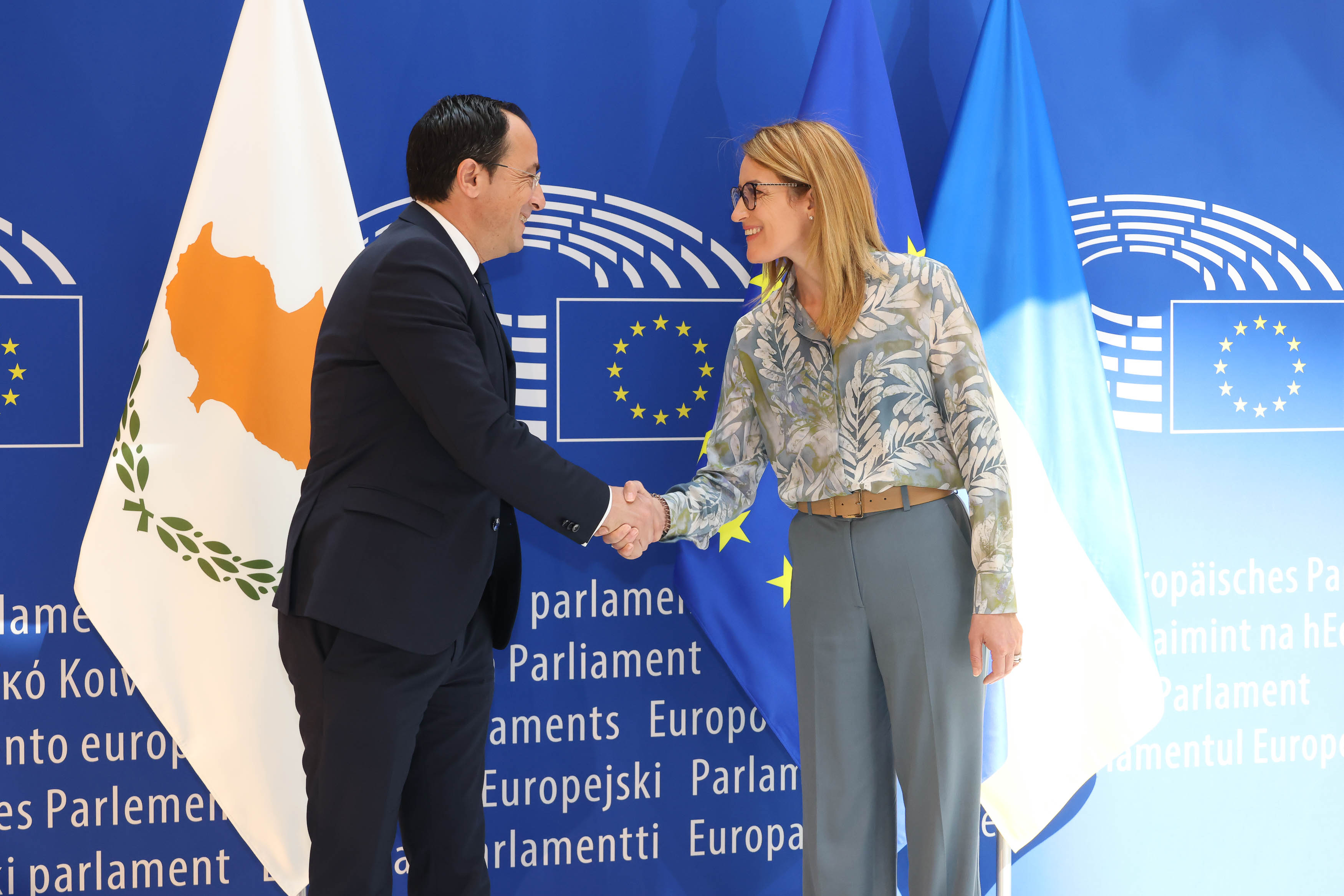Cyprus will continue to be a member of the European Union even after a potential resolution to the Cyprus issue, President Nikos Christodoulides affirmed on Wednesday during a meeting with European parliament president Roberta Metsola in Brussels.
President Christodoulides stressed that Cyprus must remain a “functional, predictable member state” as it navigates the path towards resolving the decades-long conflict. He added that the European Union must continue to play a key role in supporting the island’s future, regardless of the outcome of the ongoing negotiations.
Metsola, in turn, reiterated the EU’s commitment to supporting efforts under the auspices of the United Nations. She emphasised that any solution to the Cyprus issue must be within the framework of a single, sovereign European state. She noted that her earlier discussions with UN secretary-general António Guterres also included Cyprus and how the EU could assist in advancing peace talks.
During their discussions, Christodoulides and Metsola addressed the EU’s role in Cyprus’ future and its continued integration into the European framework. The President highlighted that Cyprus’ EU membership is intact, even though the acquis communautaire is suspended in areas outside the effective control of the Cypriot government, particularly in the north of the island, where Turkish forces maintain a presence.
Christodoulides explained that a “positive trajectory” for the Cyprus issue is emerging, marking the first such development since 2017. He detailed an agreement to appoint a special envoy to facilitate the next steps, with the aim of resuming talks by the end of July. This follows on from the Geneva talks earlier this year.
The president of the European parliament underscored that the EU would continue to support a UN-led resolution process, with all necessary political and diplomatic tools. Metsola also remarked that the EU’s stance is clear: a solution must respect the EU’s values and principles, reinforcing Cyprus’ place as a fully integrated European state.
Metsola pointed to the EU’s past support for Cyprus, recalling the 2004 accession, and reaffirmed that the union has consistently advocated for the reunification of the island. She welcomed initiatives that build trust between the Greek and Turkish Cypriot communities and looked forward to progress during the planned meetings in July.
Christodoulides and Metsola also discussed broader EU matters, including the situation in Ukraine and the importance of unity within the European Union. Christodoulides called for a unified approach to the ongoing crisis in Ukraine, noting that failure to present a common position would send a negative message about the EU’s strength on the global stage.
Both leaders highlighted the importance of maintaining unity, particularly on issues related to Ukraine. Metsola commended the EU for achieving unanimity on multiple decisions related to Ukraine, including sanctions and the granting of candidate status. However, she warned against the risks of moving away from consensus on key EU issues.
The discussion also touched upon Cyprus’ upcoming role as the presidency holder of the EU Council in January 2026. Christodoulides expressed his hope that this will further contribute to European cohesion and resilience, offering Cyprus an opportunity to play a central role in shaping EU policy.
Christodoulides concluded that the EU’s support remains crucial in the pursuit of a just and lasting solution to the Cyprus issue. He thanked the European parliament and the EU for their continued backing of Cyprus’ reunification efforts.
“There is only one basis for a solution,” he said, referring to the relevant UN security council resolutions, which call for a bizonal, bicommunal federation that respects European Union values.
As the discussions unfold and the EU prepares for its upcoming summit, the hope remains that both Cyprus and Europe will move closer to a resolution, fostering peace and unity on the island and within the EU itself.






Click here to change your cookie preferences